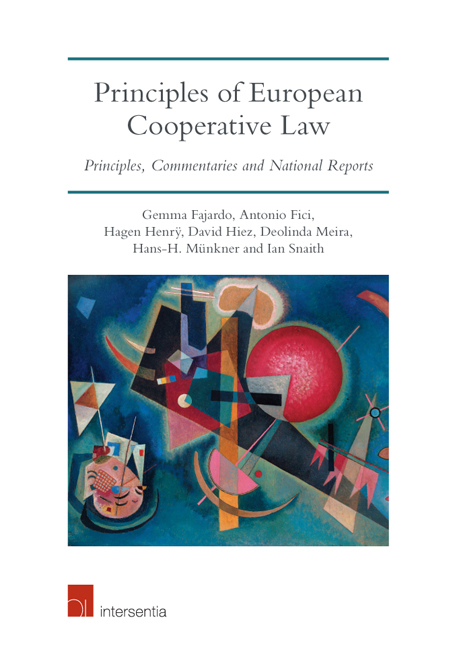Book contents
Chapter 9 - Italy
from Part II - National Reports
Published online by Cambridge University Press: 22 September 2018
Summary
DEFINITION AND OBJECTIVES OF COOPERATIVES
INTRODUCTION
In Italian law, the cooperative is a particular type of legal entity – more precisely, a particular type of company with juridical personality – which is subject to a specific set of rules identifying it by a particular aim and structure. Moreover, in Italian law, several‘legal types’ of organisations exist. What characterises and distinguishes a certain legal type is a combination of the entity's purpose and structure, according to the assumption that any organisation is established to achieve a given result in a certain manner.
The entity's purpose is, therefore, one of the most important elements in the classification of the existing organisational types, and Italian law frequently includes the purpose of an organisation in its legal definition. Th is certainly helps to identify and separate the organisational legal types, and makes a systematic interpretation of organisational law easier. Inquiring into the purpose of a legal entity also helps to interpret its regulation, since entities‘regulations should be consistent with their purposes.
The purpose of a legal entity includes both the ultimate objective of the organisation (scopo-fine), and the activity by which the organisation aims at pursuing it (scopo-mezzo). The activity performed may be the element that permits distinction among legal types of entities that pursue the same final objective. In other instances, and cooperatives may be one of them, the activity performed and the entity‘s ultimate objective coincide, in the sense that the activity does not play an instrumental role, but its very performance constitutes the final objective of the organisation. While, for example, for-profit companies conduct business (scopo-mezzo) in order to distribute profits to shareholders (scopo-fine), by conducting business with its members a cooperative may achieve its objectives per se, given that – as we shall see – the mutual purpose that characterises Italian cooperatives consists in running an activity that directly satisfies the interests of the members.
DEFINITION OF COOPERATIVE
The general regulation of Italian cooperatives is set forth in articles 2511–2545 octiesdecies ICC, as amended by Legislative Decree 17 January 2003, no. 6, reforming company law.
- Type
- Chapter
- Information
- Principles of European Cooperative LawPrinciples, Commentaries and National Reports, pp. 347 - 408Publisher: IntersentiaPrint publication year: 2017
- 1
- Cited by



